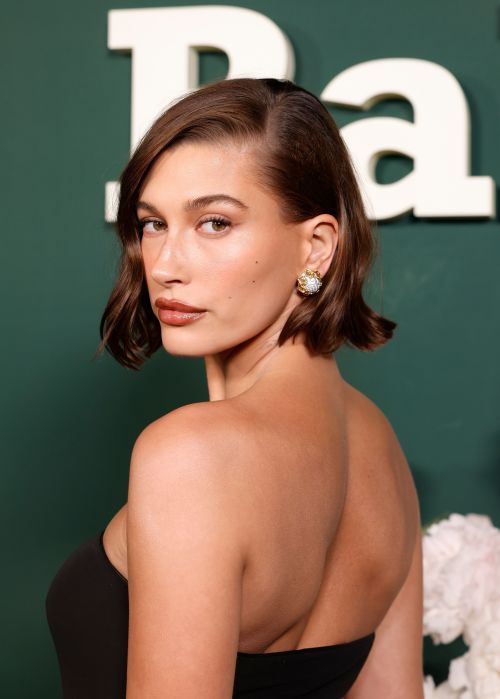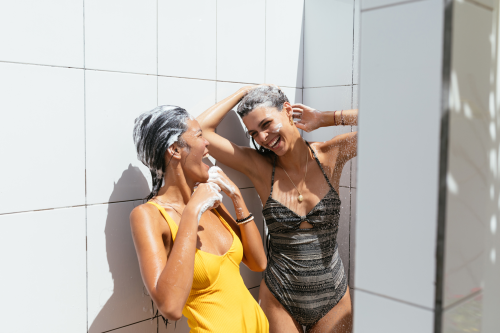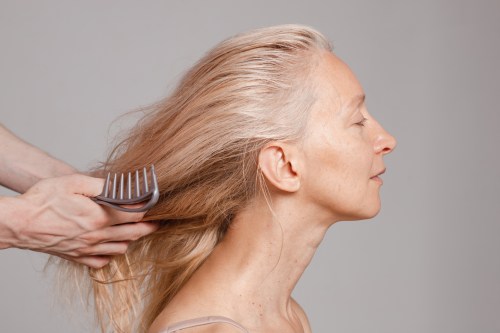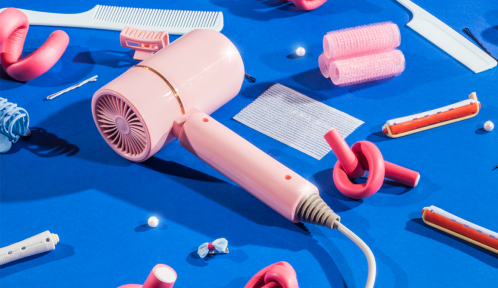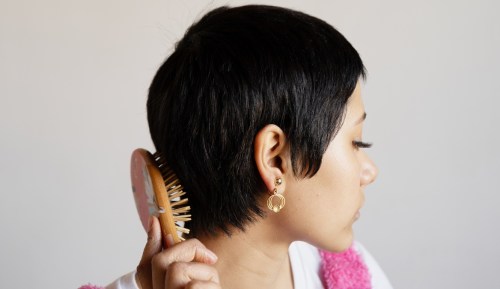There are certain supplements that you just associate with their main function, like collagen for your skin and probiotics for your gut. But what is biotin going to do for your hair?
Despite being the first supplement rattled off as something that could help you get enviable strands, biotin’s a pretty enigmatic supplement—as in, most people probably can’t explain what it is or what it does. And that’s why I tapped some experts to get the lowdown on everyone’s favorite hair beautifying pill. Keep scrolling to hear more about the buzzy beauty supplement and its side effects.
What is Biotin and can it *really* help your skin and hair?
Biotin’s actually a water-soluble B vitamin—also called B7 or vitamin H—which means your body doesn’t store it and it’s critical in many processes for cellular metabolism as well as breaking down fats, proteins, and carbohydrates into energy, according to Corina Crysler, clinical nutritionist and owner of Moonshine Juicery.
If you’re not taking it in supplement form, you can find it in foods like eggs, nuts, seeds, whole grains, sweet potatoes, and leafy greens, according to Crysler.
If you want to start taking it, Crysler says there’s no recommended daily allowance but 30 to 70 mcg (micrograms) is a common daily need (though you’ll see many of the hair supplements clocking in at between 1000 and 10,000 mcg). “The truth is everyone can take and receive the benefits of biotin,” says Charles Passler, MD, a celebrity nutritionist.
What are its benefits?
Because of the impact it has on your body’s ability to metabolize nutrition, biotin can also play a big role in your mood and overall wellbeing, according to Dr. Passler. But what about your hair? “Biotin alone is not going to completely reverse [hair loss] overnight,” he says, though if one has a deficiency in biotin, studies have indicated that it could help. In addition to a healthy diet (which TBH is most important of all), Dr. Passler does recommend supplementing if you have dry or brittle nails, skin, or hair.
Here’s the grain of salt: Crysler notes that there are limited clinical studies that show a marked improvement for hair growth in healthy individuals. “More studies need to be done to show the effectiveness of biotin,” she says.
What are the side effects?
If you’re not consuming biotin in your everyday diet, rest easy because chances are, you’re getting enough of the nutrient. “Deficiency in biotin is rare, as you only need a small amount,” says Crysler. “The thing is, there’s limited testing that’s been done on biotin deficiencies. Thinning hair or skin rashes may be symptoms, though, hence why it’s been used as a hair loss supplement.” However, if you’re not suffering from a deficiency it’s probably not going to do you a ton of good to start taking it all of the sudden.
Because it’s water soluble, the excess gets eliminated through your urine, according to Crysler—so it’s really hard to overdo it. Another doctor concurs: “The good news about biotin supplementation is that it has not been shown to have any side effects, even at very high levels,” says Sarah Jamison, MD, a board certified ER physician and health and wellness expert. Though there is one potential downside. “Excessive consumption of biotin at most can cause interference with laboratory testing of certain chemicals in the body,” Dr. Jamison tells me. Even in small doses it can do this. So to avoid showing incorrect results on a lab test or getting misdiagnosed, be sure to alert your doctor of the supplements that you’re taking.
Despite the super-small chance of side effects, however, a doctor’s gotta list the slight chances: “Upset stomach, acne, drug interactions, frequent urination, high blood sugar, skin rash, and allergic reactions are the most common potential side effects,” notes Dr. Passler. “Although these side effects are not common for most individuals, it’s important to be aware of the possibilities.” And there you have your brush up on biotin.
Originally posted August 2, 2018, updated June 25, 2019.
Besides biotin, these are 10 supplements for thicker, fuller hair. And these are the best supplements for clear, glowing skin.
Sign Up for Our Daily Newsletter
Get all the latest in wellness, trends, food, fitness, beauty, and more delivered right to your inbox.
Got it, you've been added to our email list.


